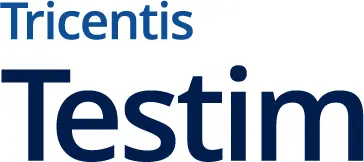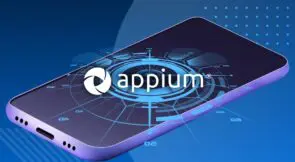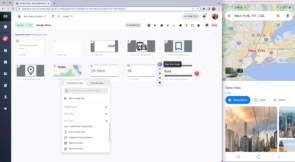Mobile applications have become essential to our daily lives. We use them for everything – banking, shopping, booking travel, and even ordering food. With the surge in mobile app usage, user expectations have skyrocketed. We demand apps that are fast, reliable, and bug-free. This puts immense pressure on organizations to ensure their mobile apps deliver a seamless user experience. But, the reality is, testing mobile has many application challenges that can be a real headache.
Mobile Application Challenges To Optimization
Let’s be honest, the traditional methods of mobile app testing just haven’t kept up with the rapid evolution of mobile technology. We’re stuck dealing with a whole bunch of challenges:
- The Rise of Cross-Platform Frameworks: Modern development trends favor cross-platform frameworks like Flutter and React Native. While these frameworks are fantastic for developers, they present a nightmare for traditional testing tools like Appium, which often produce unreliable tests or fail altogether.
- Scalability Issues: As your app grows the need to test on more devices and configurations taxes already stretched manual testing teams, and forces teams to make coverage tradeoffs with scarce time constraints. This leads to stability and scalability issues for the team, and quality tradeoffs for the product.
- Fragile Tests: Traditional automation techniques to identify app objects leads to fragile tests that break with the slightest application change and require constant updates to get scripts to run. When tests constantly fail during execution due to these application challenges, confidence in test efficacy erodes and the development team begins to blame all failures on the tests rather than what is being tested.
- Device Diversity: The sheer number of mobile devices, operating systems, and configurations makes comprehensive testing a logistical challenge. Most organizations are forced to select a set number of devices, configurations, and versions they will support, and backwards compatibility often suffers, exposing the company to reputational challenges and potential security vulnerabilities.
- Configuration Complexities: Setting up and managing virtual and physical devices for testing can be a time-consuming and frustrating process. Having enough devices to address these complexities presents many organizations with a financial challenge.
- Integration Hurdles: Seamlessly integrating different testing tools for authoring, execution, and management can be a major challenge.
Continuous Quality
With the advent of mobile business solutions, customers demand new features and capabilities more often than ever before. This translates to pressure on development teams to produce in a more agile and continuous way, releasing new features quickly, often daily to meet this demand. This further reduces the amount of time testers have to verify and validate new features and ensure through regression that all existing functionality is unharmed. This continuous quality environment expects testing to be a continuous part of the development value stream, and demands new approaches to achieving quality and better solutions for mobile testing.
Optimizing Mobile Applications With Testim
As companies must adapt to the diversity of the mobile market, testing platform providers must also adapt to these changes and provide more comprehensive testing solutions to their customers. I really like how Tricentis is approaching these application challenges head-on. They have really spent considerable focus on developing the Testim Mobile platform to address the critical problems that face quality organizations today and into the future. Their focus is not just on traditional testing teams, but to allow the entire team to participate in driving continuous quality. By addressing the common pain points that organizations are currently facing, then empower development teams to deliver high-quality mobile apps with confidence.
What Makes Testim Mobile Stand Out
- Enhanced Mode – A Breakthrough in Test Automation: This new feature is specifically designed to handle the complexities of cross-platform frameworks (React Native and Flutter) and hybrid applications with embedded web views. Testim Mobile’s Enhanced Mode delivers reliable test automation that simply works – something previously impossible with traditional automation tools.
- Test Resiliency – Less Maintenance, More Testing: Testim Mobile uses proprietary technology to understand your application’s structure on a deeper level. This results in incredibly stable tests that can withstand application changes, freeing you from the constant burden of test maintenance.
- Cloud-Based Simplicity: Forget about complicated setups! With Testim Mobile, all you need to do is upload your app and start testing in the cloud. No longer do you need to manage and maintain labs full of devices and spend time configuring every device, OS, and configuration in your testing scenarios.
- Comprehensive Support: Testim Mobile manages the complexities of your design for you. Whether your app is native, hybrid, or built with a cross-platform framework, Testim Mobile is able to navigate your architecture. It just works, letting you focus on the objectives of your test.
- Seamless Integration: Testim Mobile seamlessly integrates test authoring, execution, and management, providing a streamlined testing workflow. With time being the biggest constraint for organizations, teams no longer have to work across multiple solutions to define, build, execute and manage testing.
Additional Considerations
In addition to these features, that are game changers for any quality team, Tricentis has invested in giving Testim Mobile some additional capabilities that you may not even have considered asking for:
- AI-Powered Test Authoring: Create tests quickly with a low-code editor, and let AI handle the heavy lifting. This enables developers and other team members to quickly identify the objectives of testing and let the tool write the detailed scripts, putting the focus on design not coding.
- Virtual Mobile Grid: Access a wide range of virtual iOS and Android devices to ensure comprehensive test coverage. This enables organizations to expand their test coverage and results in improved quality outcomes for users.
- Fast and Easy Debugging: Testim Mobile provides detailed dashboards and visualizations, making it easy to identify and fix bugs quickly. Troubleshooting failures traditionally was a game of blame between developers and test engineers. Now details are available to teams to quickly analyze and identify failure mechanisms and code issues. This puts information in the hands of development quicker and results in faster defect resolution.
Mobile Applications Need More Testing
As the dependence on mobile applications increases and more consumers look to their device to manage their lives and their businesses, the demands for quality applications will only increase. The competitive landscape for mobile solutions will drive those developing these solutions to continuously improve the speed at which they deliver value to the marketplace. In order to accomplish speed with quality, testing has to meet development teams at the speed of business. This demands more comprehensive testing and improved testing solutions to meet that demand.
Testim Mobile is a comprehensive, cloud-based solution designed to address the application challenges of mobile testing. It empowers teams to automate testing for a wider range of apps, reduces maintenance efforts, and ensures test stability even as applications evolve. This leads to faster testing cycles, improved app quality, and ultimately, a better user experience.



